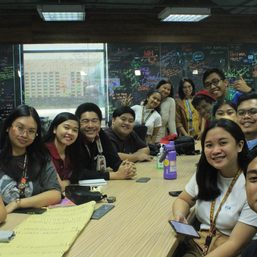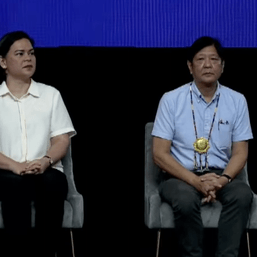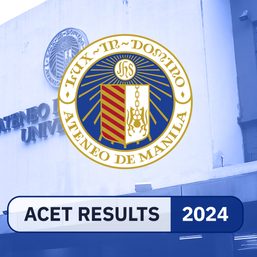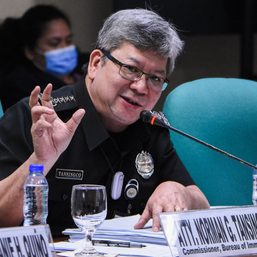SUMMARY
This is AI generated summarization, which may have errors. For context, always refer to the full article.
![[OPINION] Does the government believe there is a learning crisis?](https://www.rappler.com/tachyon/2021/07/duterte-education-sq.jpg)
This question at the Philippine Business for Education’s (PBEd) July 5 press conference was key. Since early 2021, PBEd has been beating the drums to warn against this learning crisis. A week later, the question gained greater prominence when the IATF reviewed the controversy that had erupted between Department of Education (DepEd) Secretary Leonor Briones and the World Bank (WB).
DepEd Secretary Leonor Briones was the star of the IATF session, earning praise from President Duterte for extracting a public apology from the WB, which had released a report on the poor state of basic education in the country. But the summary conclusion of the meeting, which suggested that the president was not unduly worried about education, seemed to misunderstand Secretary Briones’ issues with the WB and the gravity of the problems facing the department.
The case of Briones against the WB rested on three points. First, it released its study to the media without giving her prior advice. She deemed inadequate the personal letter of apology sent to her by the WB for this lapse, because she felt that the negative report did not reflect on her or the department but on the country, which was “insulted and shamed.” In his own letter to the WB, Department of Finance Secretary Sonny Dominguez backed her complaint against the WB’s “violation of protocol in dealing with government partners.”
Second, she faulted the report for lacking context, failing to appreciate the steps taken by the government to reform and improve the education system. She pointed out that DepEd had been in existence for 123 years and it would be unfair to hold the department or her responsible, either for the problems accumulated during the entire period or for correcting them within one presidential term.
Third, Briones noted that the study relied on dated information from past assessment tests, the Program for International Student Assessment (PISA), conducted in 2018, and the Trends in International Mathematics and Science (TIMSS) and the Southeast Asia Primary Learning Metrics (SEA-PLM), both done in 2019. Dominguez, echoing the issue of dated information, declared that the challenges identified in the WB report had been “addressed by DepEd and other development partners.” Because the report did not “reflect current realities,” it had “the effect of misleading the public and causing undue reputational risk to the Philippine education sector.”
Fair enough – reasonable objections requiring a response. As demanded by Briones, the WB did release a public statement of apology – but only for the fact that the report was “inadvertently published earlier than scheduled and before the Department of Education had enough chance to provide inputs.” It did not retract the findings of the study. It admitted a procedural lapse, but did not admit causing reputational damage; the study was hardly the violation of the “highest standards of ethical and professional conduct” that the DOF letter suggested was involved.
The problem, for the public, is that while WB study came out in July 2021, the dismal Philippine results in the assessment tests upon which the study was clearly based had been in the public domain since December 2020. These were known to DepEd and conveyed to the president before the study’s publication. And there had been no new international assessment tests conducted since 2019. What additional national embarrassment, then, might the WB report have caused?
The WB apology volleyed the ball back to DepEd’s court, placing on the department the burden of explaining the statements made in its defense. What then were the “current realities” in education that the WB’s reliance on dated information failed to consider? Or the “incongruities” and “inconsistencies” in the WB report to which the president alluded at the IATF session? Dominguez might be correct; the situation could have improved since 2018. But DepEd will have to provide the evidence.
The president had a simpler take on the state of Philippine education. In his view, Philippine education was doing poorly because the country was poor. As former National Treasurer heading the Bureau of Treasury, Briones knows well the importance of resources. But would she subscribe to the presidential explanation? If poverty were the only explanation, the Philippines should not have recorded the lowest test scores. The students of other countries poorer than the Philippines delivered better learning achievements. Vietnamese and Chinese students, supported by a fraction of what the US invests for its students, were ranking better than the Americans.
The chronic learning crisis, which PBEd has been tracking for over 10 years as a national and non-partisan issue, has become alarming because reform measures, undertaken at considerable costs, have so far failed to demonstrate their benefits. In raising the alarm, PBEd hopes to mobilize a national effort that would include the convening of a top-level Education Commission. PBEd has itself organized several virtual sessions that brought together students, parents, teachers, academics, education officials, journalists, and legislators to promote this advocacy, and no one has questioned their characterization of the situation as a crisis. VP Robredo has also supported this call, and so have other politicians allied with the administration. The Senate has already begun hearings to consider how best to mobilize public and private support for an effective EdCom.
Hence, the declaration of the Education Secretary was puzzling: “I don’t know who should judge whether we have a crisis in education or not.” From international assessment tests, 80% of Filipino basic education students have not reached the learning levels they were expected to attain. Grade 12 students have graduated with Grade 6 competencies. There’s no need to debate over whether this is a crisis. It’s essential to persuade the public and the government to take appropriate action. – Rappler.com
Edilberto de Jesus is a senior research fellow at the Ateneo School of Government.
Voices features opinions from readers of all backgrounds, persuasions, and ages; analyses from advocacy leaders and subject matter experts; and reflections and editorials from Rappler staff.
You may submit pieces for review to opinion@rappler.com.
Add a comment
How does this make you feel?
![[EDITORIAL] Ang pag-aalboroto ni Leonor Briones](https://www.rappler.com/tachyon/2021/07/animated-deped-worldbank-carousel.jpg?fit=449%2C449)



![[Just Saying] Diminished impact of SC Trillanes decision and Trillanes’ remedy](https://www.rappler.com/tachyon/2024/04/Diminished-impact-of-SC-Trillanes-decision-and-remedy.jpg?resize=257%2C257&crop=273px%2C0px%2C720px%2C720px)
![[Rappler Investigates] Son of a gun!](https://www.rappler.com/tachyon/2024/03/newsletter-duterte-quiboloy.jpg?resize=257%2C257&crop=450px%2C0px%2C1080px%2C1080px)
![[Time Trowel] Mentorship matters](https://www.rappler.com/tachyon/2024/04/mentorship-matters.jpg?resize=257%2C257&crop_strategy=attention)
![[OPINION] Education for life: Weaving ethics in all subject areas](https://www.rappler.com/tachyon/2024/03/Education-for-Life-Weaving-Ethics-in-All-Subject-Domains.jpg?resize=257%2C257&crop_strategy=attention)
![[OPINION] Limited intake of international students: Is Canada knee-capping its future?](https://www.rappler.com/tachyon/2024/02/tl-canada-forgeign-student-cap-02232024-2.jpg?resize=257%2C257&crop_strategy=attention)

![[Rappler Investigates] Who’s fooling who?](https://www.rappler.com/tachyon/2024/02/rodrigo-sara-duterte-2019.jpeg?resize=257%2C257&crop=167px%2C0px%2C900px%2C900px)






![[Newsstand] The Marcoses’ three-body problem](https://www.rappler.com/tachyon/2024/04/tl-marcoses-3-body-problem.jpg?resize=257%2C257&crop=451px%2C0px%2C1080px%2C1080px)
![[Edgewise] Preface to ‘A Fortunate Country,’ a social idealist novel](https://www.rappler.com/tachyon/2024/02/a-fortunate-country-february-8-2024.jpg?resize=257%2C257&crop_strategy=attention)
![[New School] When barangays lose their purpose](https://www.rappler.com/tachyon/2024/02/new-school-barangay.jpg?resize=257%2C257&crop=414px%2C0px%2C1080px%2C1080px)
There are no comments yet. Add your comment to start the conversation.